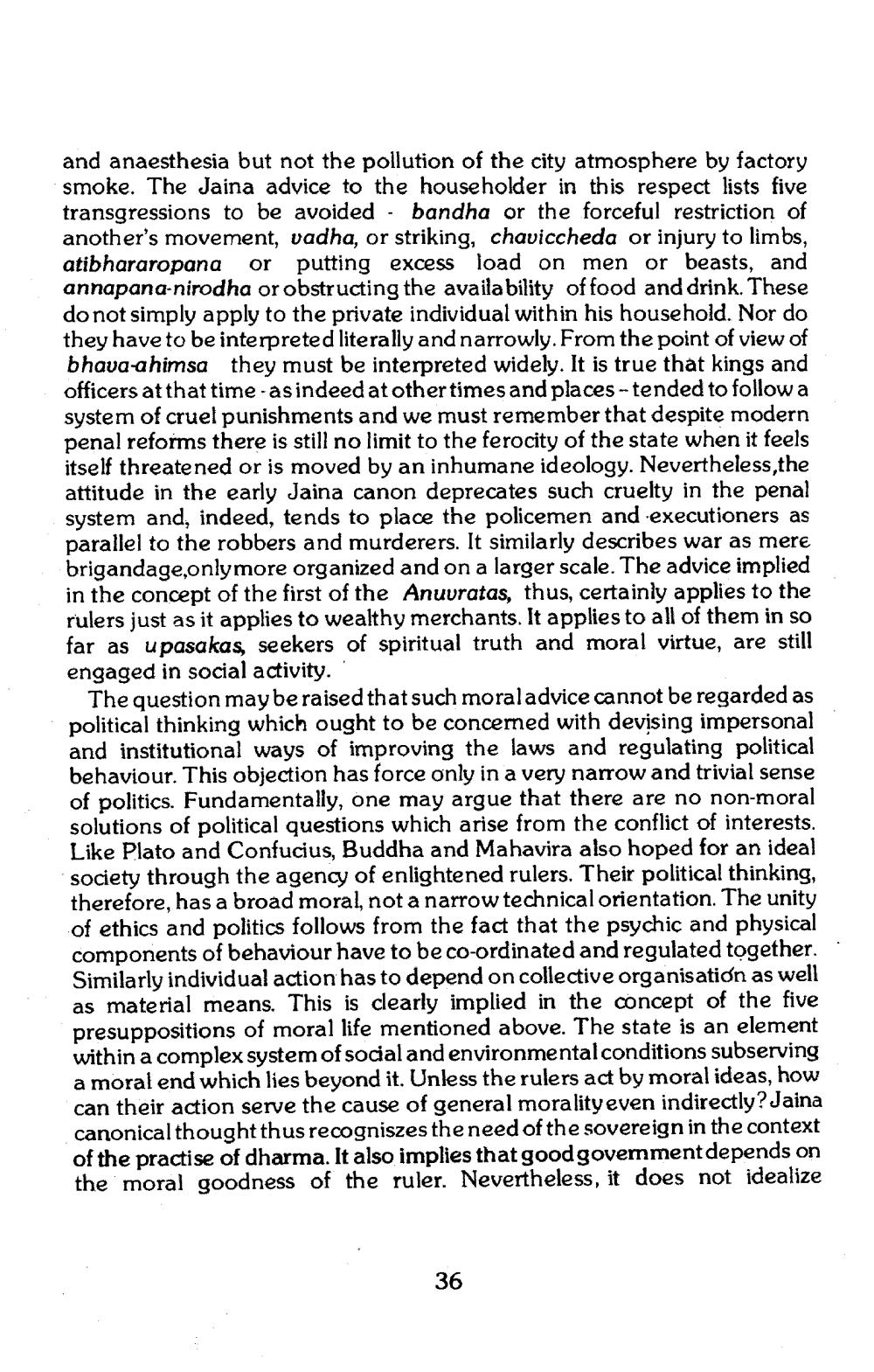________________
and anaesthesia but not the pollution of the city atmosphere by factory smoke. The Jaina advice to the householder in this respect lists five transgressions to be avoided - bandha or the forceful restriction of another's movement, vadha, or striking, chaviccheda or injury to limbs, atibhararopana or putting excess load on men or beasts, and annapana-nirodha or obstructing the availability of food and drink. These do not simply apply to the private individual within his household. Nor do they have to be interpreted literally and narrowly. From the point of view of bhava-ahimsa they must be interpreted widely. It is true that kings and officers at that time.asindeed at other times and places - tended to follow a system of cruel punishments and we must remember that despite modern penal reforms there is still no limit to the ferocity of the state when it feels itself threatened or is moved by an inhumane ideology. Nevertheless, the attitude in the early Jaina canon deprecates such cruelty in the penal system and, indeed, tends to place the policemen and executioners as parallel to the robbers and murderers. It similarly describes war as mere brigandage,onlymore organized and on a larger scale. The advice implied in the concept of the first of the Anuuratas, thus, certainly applies to the rulers just as it applies to wealthy merchants. It applies to all of them in so far as u pasakas, seekers of spiritual truth and moral virtue, are still engaged in social activity.
The question may be raised that such moraladvice cannot be regarded as political thinking which ought to be concemed with devising impersonal and institutional ways of improving the laws and regulating political behaviour. This objection has force only in a very narrow and trivial sense of politics. Fundamentally, one may argue that there are no non-moral solutions of political questions which arise from the conflict of interests. Like Plato and Confucius, Buddha and Mahavira also hoped for an ideal society through the agency of enlightened rulers. Their political thinking, therefore, has a broad moral, not a narrow technical orientation. The unity of ethics and politics follows from the fact that the psychic and physical components of behaviour have to be co-ordinated and regulated together. Similarly individual action has to depend on collective organisation as well as material means. This is clearly implied in the concept of the five presuppositions of moral life mentioned above. The state is an element within a complex system of social and environmental conditions subserving a moral end which lies beyond it. Unless the rulers act by moral ideas, how can their action serve the cause of general morality even indirectly? Jaina canonical thought thus recogniszes the need of the sovereign in the context of the practise of dharma. It also implies that good government depends on the moral goodness of the ruler. Nevertheless, it does not idealize
36




